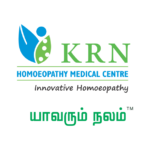
Learning Disability
Learning disabilities are neurological conditions that affect an individual’s ability to acquire, process, or express information.
These challenges often manifest in academic settings and may persist throughout life. Common types include dyslexia, dyscalculia, and ADHD. Early identification and intervention are crucial for effective support. Accommodations, such as personalized learning plans and assistive technologies, can empower individuals with learning disabilities.
It’s important to recognize the unique strengths and talents that often accompany these challenges. Collaborative efforts involving educators, parents, and specialists are essential to create inclusive environments.
Tailored educational strategies, such as multisensory teaching approaches, can enhance learning for individuals with learning disabilities. Ongoing research and awareness initiatives contribute to a better understanding of learning disabilities and inform evidence-based interventions.
Emphasizing a strengths-based perspective fosters a positive mindset and resilience in those facing learning challenges. Support networks, including counseling and peer groups, play a vital role in promoting social and emotional well-being. Education and advocacy efforts aim to reduce stigma and promote inclusivity for individuals with learning disabilities. Ultimately,
a comprehensive and empathetic approach is key to unlocking the potential of individuals with learning disabilities, ensuring they thrive academically, socially, and personally.






